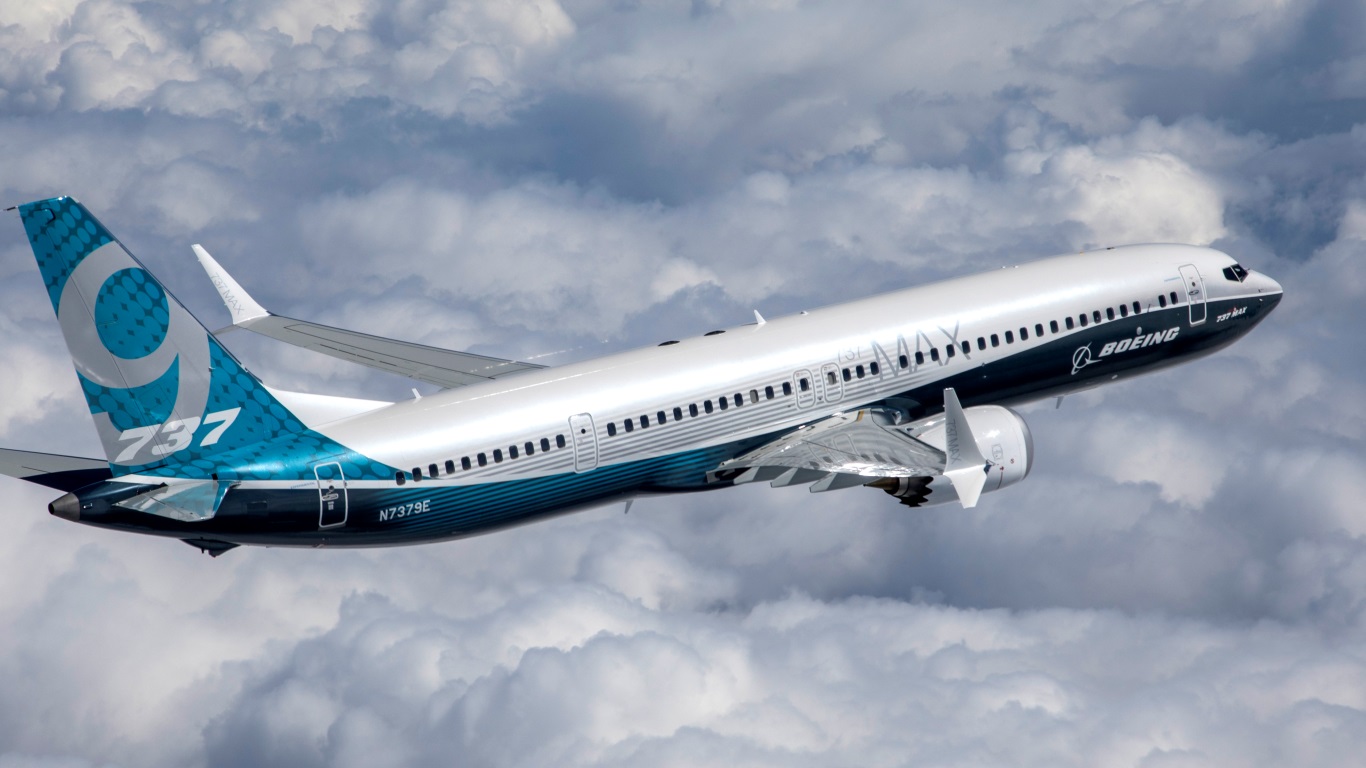Transportation
Despite 737 MAX Grounding, US Airlines May Not Be Suffering

Published:
Last Updated:

Since the Boeing Co. (NYSE: BA) 737 MAX was grounded worldwide in March, U.S. airlines have been canceling flights that had been scheduled on Boeing’s newest single-aisle jet. Those cancellations have been good news for some airlines, however.
According to a report Wednesday at Barron’s, Stifel analyst Joseph DeNardi reckons that the absence of the 737 MAX has cut about 2% from the airlines’ seat capacity in the second quarter. American Airlines Group Inc. (NASDAQ: AAL) has even dropped an entire route, its daily flight between Dallas-Fort Worth and Oakland, California. The airline said in a statement that it canceled the flight “to minimize the impact to the smallest number of customers. American has additional service from San Francisco and San Jose [to Dallas-Fort Worth], and we can connect passengers from Oakland via our Phoenix hub.”
The upside for at least one airline is that the 2% reduction in capacity is raising its revenues for the seats that remain available. On Tuesday, Delta Air Lines Co. (NYSE: DAL) reported that revenue miles rose by 8% year over year on domestic flights in June and capacity rose by 4.4%. For the first six months of this, revenue miles are up 7% and capacity is up 5.5%. The airline’s load factor rose 2.9 percentage points to 90.9% in June compared with a year-to-date average of 86.1%. Delta has no 737 MAX jets in its fleet, so has not had to cancel any flights due to the aircraft’s grounding.
Not one to miss an opportunity, Delta has raised its fares. And why not? The 737 MAX grounding has led to fewer seats, fewer flights and rising demand for the seats and flights that are available. Delta likes the current state of affairs so much that it raised its second-quarter earnings-per-share guidance from $2.18 to $2.30, and that’s based on an April revenue boost of 8.3%. Once the company does the math for May and June, that higher earnings estimate may be left behind too.
Southwest Airlines Co. (NYSE: LUV) flew 34 737 MAX jets prior to the March grounding, while American flew 24 and United Continental Holdings Inc. (NASDAQ: UAL) flew 14. Southwest is canceling around 115 flights a day, and United has said it expects 5,340 flight cancellations for the six months between April and September.
While these companies are canceling flights and presumably losing money due to the 737 MAX grounding, let’s wait until they report June passenger data. In the noon hour Wednesday, shares of all four carriers were trading higher thanks to Delta’s guidance boost.
Delta traded up about 1.5%, at $59.41 in a 52-week range of $45.08 to $61.32 with a price target of $67.00.
United traded up more than 2% to $90.77, in a 52-week range of $67.94 to $97.85. The consensus 12-month price target on the stock is $104.65.
Southwest traded up about 1.2% to $52.04, in a 52-week range of $44.28 to $64.02. The price target on the stock is $59.18.
American shares traded up 1.8%, at $32.77 in a 52-week range of $27.02 to $43.89, and the price target on the stock is $40.56.
If you’re one of the over 4 Million Americans set to retire this year, you may want to pay attention.
Finding a financial advisor who puts your interest first can be the difference between a rich retirement and barely getting by, and today it’s easier than ever. SmartAsset’s free tool matches you with up to three fiduciary financial advisors that serve your area in minutes. Each advisor has been carefully vetted, and must act in your best interests. Start your search now.
Don’t waste another minute; get started right here and help your retirement dreams become a retirement reality.
Thank you for reading! Have some feedback for us?
Contact the 24/7 Wall St. editorial team.